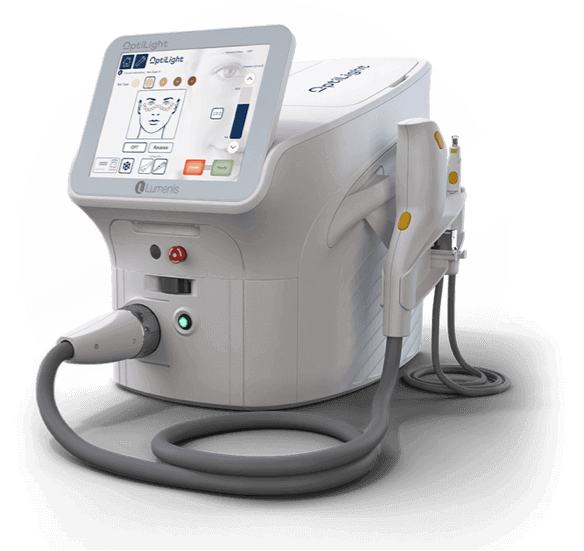IPL Therapy

Intense Pulsed Light (IPL) therapy, which has traditionally been used by dermatologists to treat rosacea, acne and sun damage, has proven to be effective for those with more severe cases of dry eye, who had little success with other measures, such as artificial tears and prescription eye drops.
Dry eye occurs when your eyes produce poor quality tears or do not produce enough tears, both of which can lead to symptoms of burning, grittiness and blurry vision that can be debilitating. The cause of dry eye in many cases is inflammation of the eye’s oil producing glands, called meibomian glands. Oils produced by meibomian glands prevent evaporation of your tear film. But for many patients with dry eye, these oils become clogged and hardened within the glands. IPL delivers powerful bursts of light and heat to the glands, liquefying the oils. The oils are then extracted through a procedure called Meibomian Gland Expression (MGX). Additionally, IPL treats the underlying cause of inflammation by reducing the flow of inflammatory materials to the meibomian glands, for long-lasting relief.
During the procedure, the patient sits comfortably with eyes closed. Eye shields are placed over the eyes. The hand piece delivering the pulses of light is passed over multiple locations along the lower lid and cheeks. The patient experiences a slight feeling of warmth and brightness, but the procedure is not painful. Most patients undergo four treatments 2 to 3 weeks apart.
Most patients who are offered this therapy have tried many of the other dry eye treatments with limited success. The IPL treatment addresses the underlying cause of inflammation has shown positive results. Unfortunately, the IPL treatment is not yet covered by insurance.
The treatment has very few contraindications and can be even more effective when combined with two other therapies offered at OCB, Lipiflow, a procedure that assists doctors with opening up the Meibomian glands and Blephex, which is used to cleanse and remove bacteria from the eyelids. OCB cornea specialists have expertise in determining which treatment or combination of treatments is best suited to each patient’s treatment goals.
